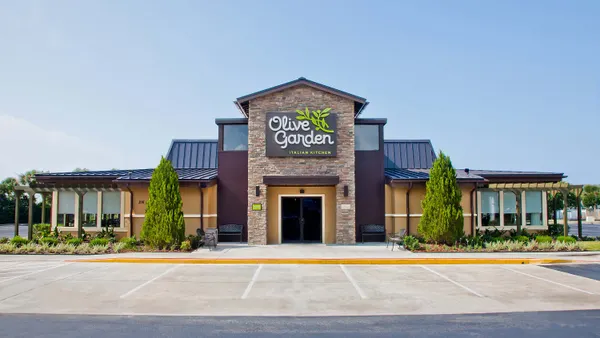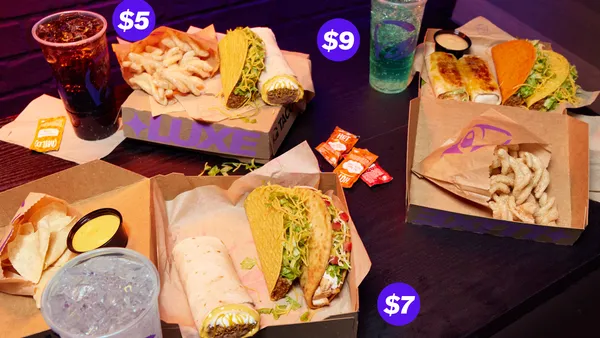Brief:
- McDonald's Sweden gave away limited-edition picnic blankets featuring a scannable QR code that lets people place a mobile order for food delivery. The burger chain offered the blankets through its social media channels in Sweden as part of a campaign to promote its food-delivery service, Adweek reported.
- By scanning the blanket's QR code, a smartphone user sends their geographic location to their food-delivery service of choice, such as Uber Eats. The nearest McDonald's chain receives and fulfills the order before handing it off to the delivery service, which will then meet the customer at their blanket.
- Agency Nord DDB developed the QR picnic blankets for McDonald's. The agency recently oversaw a campaign for the chain to raise awareness about declining bee populations by creating tiny replicas of McDonald's restaurants, dubbed "McHives," that function as real beehives.
Insight:
McDonald's social media giveaway of QR-enabled picnic blankets is a novel way to promote the flexibility of the burger chain's mobile ordering and payment services. Instead of emphasizing the convenience of ordering food from home or the office, McDonald's is showing how the geolocation capabilities of mobile devices make food ordering possible from virtually anywhere.
In the U.S., Domino's Pizza has tried a similar tactic by aggressively expanding its mobile "hotspots" capabilities to designate thousands of fixed delivery spots near parks and beaches that don't have a traditional address. 7-Eleven last week added a feature to its 7NOW delivery app that will offer a similar service. Hot spots like these can expand the use of mobile ordering by offering consumers more opportunities for delivery.
While McDonald's QR-enabled picnic blanket is a quirky idea, it may help the company to stand out among a crowded field of fast food chains and delivery options. Companies like Postmates, Grubhub, Uber Eats and DoorDash are enabling a wider group of restaurants to offer food delivery without investing in their own technology to handle orders and to hire extra delivery people. In the U.S., digital restaurant orders jumped 23% a year since 2013 and are expected to triple in volume by 2020, according to researcher NPD Group. Six out of 10 digital orders are completed by mobile apps, and third-party restaurant apps make up 40% of the 20 most-used apps for delivery.
McDonald's is betting on technology to enhance the customer experience, as its recent acquisitions demonstrate. The company in March agreed to buy Israeli startup Dynamic Yield, an artificial intelligence (AI) firm that focuses on personalization tech, for $300 million — a first for the fast-food industry. The startup's technology will help to create a more personalized customer experience, including outdoor digital drive-thru menu displays that can change depending on the time, weather, current restaurant traffic and trending menu items. McDonald's followed that takeover with an investment in New Zealand mobile app developer Plexure to personalize its smartphone experience for customers as people grow accustomed to on-demand services.









